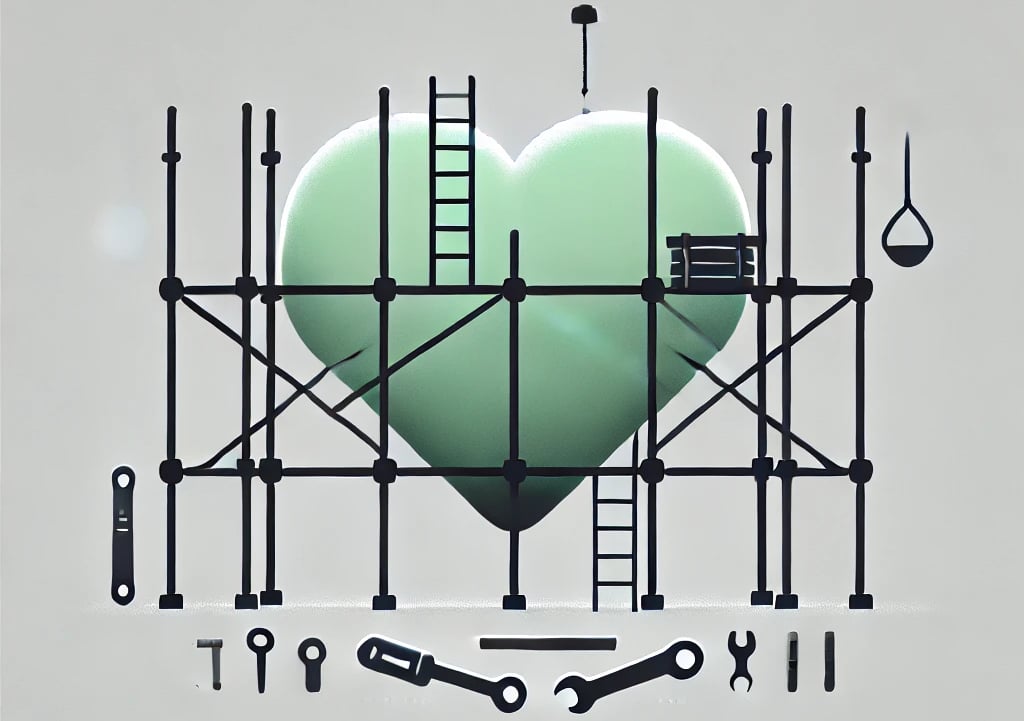La Monnaie de l’Amour : Réflexions sur le Don, la Réception et la Compréhension de Soi
Explore the complexities of love beyond romance, delving into how we feel, give, and understand this universal yet deeply personal experience. Uncover the concept of “love currency,” the energy we invest in relationships, and how it shapes our connections and self-understanding. From quantum physics to philosophy, this reflection examines love as an exchange of energy, a mirror of self-discovery, and an ever-evolving experience of growth and connection.
Aicha
12/29/20244 min read


You know, I’ve been thinking a lot about love lately—not just the romantic kind, but the broader, all-encompassing experience of it. How we feel it, how we give it, and most importantly, how we understand it. It’s fascinating how love, a concept so universal, is also deeply personal, shaped by who we are and how we engage with the world around us.
And somewhere along the way, I stumbled upon a realization I’ve carried for a while: every person has their own “currency” when it comes to dealing with others. It’s the unique way we express value, seek connection, and find meaning in relationships.
Love and the Idea of Currency
For me, I’ve discovered that my currency is rooted in giving. I thrive on being helpful, on being needed. Whether it’s offering support, solving problems, or simply being there for someone, it’s not just something I do—it’s who I am. And it brings me joy, especially when I’m with kids. Taking care of them, supporting their parents—it’s like tapping into the core of my purpose.
But here’s the thing: when I started reflecting on love, I couldn’t help but wonder how much of my currency influences the way I experience relationships. When I fall in love, is it because I genuinely feel a deep connection? Or is it because I feel useful, valuable—needed?
It’s not an easy question to answer. Love is layered and complicated, and it doesn’t come with a clear rulebook. But understanding our personal currency can help us unpack some of the mysteries of our emotions and relationships.
The Question of “True” Love
Here’s a question I’ve been asked before: “Have you ever been in love? Truly in love?” And every time, it throws me for a loop. Because what is true love, anyway?
I’ve started wondering if my past experiences were shaped more by my need to feel needed than by love itself. When I was heartbroken, was it because I lost the person? Or was it because I lost my sense of purpose in their life? This idea opened up a Pandora’s box of questions:
Is love about connection, or is it about fulfillment?
Do we fall in love with the person, or with the version of ourselves we become in their presence?
These aren’t easy questions to answer. But they’re important to ask because they reveal so much about how we approach relationships.
Love, Quantum Physics, and the Energy We Invest
Now, let’s take a little detour into quantum physics. Stick with me—it’s worth it, I promise. In the quantum world, everything is energy. Particles interact, collide, and exchange energy in ways that create a delicate, interconnected dance.
Love, in many ways, feels the same. It’s an exchange of energy—giving, receiving, flowing. When we love, we’re investing our emotional energy into another person. We’re putting pieces of ourselves into the relationship, creating a bond that feels almost tangible.
But what happens when that bond is broken? In physics, energy can’t be destroyed, only transformed. Could the same be true for love? When a relationship ends, the love we invested doesn’t disappear. Instead, it changes form—sometimes into grief, sometimes into growth, and sometimes into a quiet, lingering memory.
Love as a Project
You know what love reminds me of? Starting a new project. Think about it: when you embark on something new—a career goal, a creative endeavor, a passion project—you dive in headfirst. You pour in your time, energy, and ideas. And in the beginning, it’s perfect.
But as the project grows, so do the challenges. You start noticing the imperfections, the setbacks, the moments that test your patience. And if the project doesn’t succeed, it hurts—not just because it failed, but because you invested so much of yourself into it.
Isn’t love the same? When we fall in love, we bring our currency—our love language, our energy, our truest selves. At first, it feels magical, like nothing could ever go wrong. But as the relationship deepens, so do its complexities. And when it ends, the heartbreak isn’t just about losing the person—it’s about losing the investment we made, the parts of ourselves we shared.
The Philosophy of Heartbreak
Let’s step back and look at heartbreak through a philosophical lens. Ancient Greek philosophers like Plato and Aristotle believed that love was a pursuit of wholeness—a way of finding the parts of ourselves we felt were missing. In their view, heartbreak wasn’t just about losing someone else; it was about losing a sense of completeness.
But modern thinkers, like existentialist Jean-Paul Sartre, suggest that love is less about completion and more about freedom. Sartre argued that true love exists when we allow the other person to be fully themselves, without trying to mold them into what we need.
It’s an interesting contrast, isn’t it? Is love about finding what we’re missing, or is it about embracing what’s already there?
A Social Perspective on Love
From a social standpoint, love is also a reflection of our cultural and personal values. In individualistic societies, love often revolves around self-fulfillment and personal growth. In collectivist cultures, it’s more about duty, family, and shared responsibility.
This cultural lens shapes how we view relationships, heartbreak, and even our own currency in love. For someone like me, who finds fulfillment in giving, love might feel different than it does for someone whose currency is rooted in independence or adventure.
So, What Really Hurts?
All of this brings me back to the big question: when love ends, what really hurts? Is it the loss of the person? The loss of the relationship? Or the loss of the version of ourselves that existed in that space?
Maybe it’s all of the above. Or maybe it’s something else entirely. Love is complicated, messy, and deeply personal. And that’s what makes it so endlessly fascinating.
WELL
I guess what I’m trying to say is, love isn’t just an emotion—it’s an experience, an investment, and sometimes, a mirror that reflects who we are. Whether it’s about giving, receiving, or simply existing in connection with someone else, love forces us to look inward and ask the hard questions.
And maybe that’s the point. Not to find answers, but to keep asking, reflecting, and learning about ourselves along the way. Because in the end, love isn’t just about what we give or receive—it’s about who we become in the process.
Contacte me
